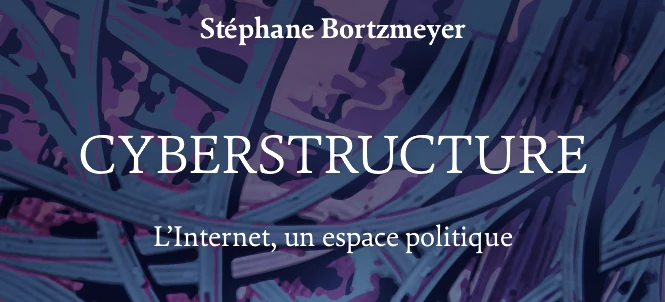Cyberstructure
Posted on September 1, 2022 • 3 minutes • 588 words • Other languages: Français
Human rights cannot be put into an algorithm.
Stéphane Bortzmeyer - Cyberstructure (p.142)During my summer vacations, I had the pleasure to discover the book of Stéphane Bortzmeyer : Cyberstructure - L’internet, un espace politique - C & F Éditions, décembre 2018.
The book consists of two main parts: The Internet Behind the Screen and Human Rights Issues.
The first 90 pages are (sometimes) less captivating if you are immersed in computers like me. However, the author succeeds in not sticking to a simple technical description, quite the contrary. Even this first part serves his subject, that of grasping the articulation between technique and politics in order to understand that technique is never neutral. I learned a lot of things I didn’t know about some aspects of governance, especially everything that revolves around ICANN or the IETF .
The second part of the book on “Human Rights Issues “ was clearly my favorite, it is just passionate. It opens thoughts and brings a lot of answers on topics like: censorship, self-hosting, free software, encryption, identity and anonymity/pseudonymity issues, sharing a common space…
Computers and the Internet are extremely complex subjects and it would take more than a lifetime to know everything. I wouldn’t say that this book is aimed at indifferent people or people who don’t know how to use computers or who hardly know how to handle them. However, Stéphane Bortzmeyer succeeds in a balancing act that is quite difficult in my opinion, that of the double addressee: the curious amateur and the specialist. Indeed, it is addressed to citizens sufficiently curious or interested in the subject of the Internet to try to understand the functioning and the stakes of this network, today a pillar of our lives. The first part of the book is therefore indispensable to the second part, even more so for the uninitiated. And at the same time, it is addressed to the engineers, technicians and other developers who build this network and the tools that animate it by raising our political and social awareness of the responsibility we have in our work.
So to present encryption as a mechanism that will blind a state and police who could investigate and will no longer be able to is very intellectually dishonest. On the contrary, we must remember that the irruption of digital technology has significantly reduced privacy available before, and that the encryption aims at restore it in a very partial way.
Stéphane Bortzmeyer - Cyberstructure (p.186)In my many professional experiences and encounters, I have very often been shocked and dismayed by the lack of political and social awareness that specialists in the sector have. Note that this is certainly only a reflection of society and not necessarily linked to a particular economic and social sector. In any case, this book deftly demonstrates that technology is not neutral :
[...]the tool allows some uses and not others, it makes some uses easy and others more difficult, and it therefore has a non-neutral role. Therefore, the technician cannot get rid of its political role. He or she may note that he or she is not responsible for everything but he or she can't avoid the choices of which I have given many examples in this book.
Stéphane Bortzmeyer - Cyberstructure (p.260)To conclude, I highly recommend this reading and even more so if you work in the computer industry. To find Cyberstructure, rendez-vous ici .
Thanks to Stéphane Bortzmeyer for this book and you can find his blog at this address : www.bortzmeyer.org
